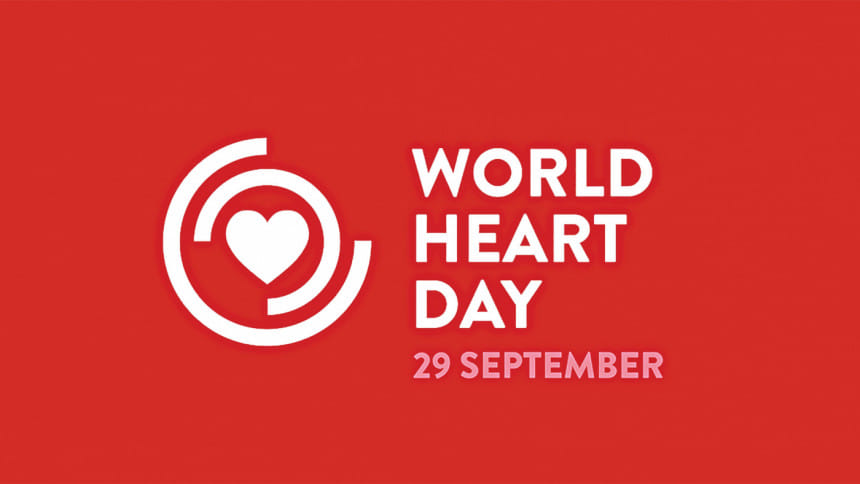Use your heart to beat CVD

In May 2012, world leaders committed to reducing global mortality from non-communicable diseases (NCDs) by 25% by 2025. Cardiovascular disease (CVD) is accountable for nearly half of all NCD deaths making it the world's number one killer. World Heart Day is, therefore, the perfect platform for the CVD community to unite in the fight against CVD and reduce the global disease burden. World Heart Day is celebrated every year on 29 September.
World Heart Day informs people around the globe that CVD, including heart disease and stroke, is the world's leading cause of death claiming 17.9 million lives each year, and highlights the actions that individuals can take to prevent and control CVD. It aims to drive action to educate people that by controlling risk factors such as tobacco use, unhealthy diet and physical inactivity, at least 80% of premature deaths from heart disease and stroke could be avoided.
World Heart Day is a global campaign during which individuals, families, communities, and governments around the world participate in activities to take charge of their heart health and that of others. It unites people from all countries and backgrounds in the fight against the CVD burden and inspires and drives international action to encourage heart-healthy living across the world.
We are living in unprecedented times. The COVID-19 pandemic has shone a spotlight on the healthcare profession, national healthcare systems and our individual responsibilities – for our own health and the vulnerable in society. We do not know what course the pandemic will take in the future but we do know that taking care of our hearts right now is more important than ever.
Cardiovascular disease (CVD) is the number one cause of death on the planet. It has many causes: from smoking, diabetes, high blood pressure and obesity, to air pollution, and rare and neglected conditions such as Chagas Disease and cardiac amyloidosis.
In the time of COVID-19, CVD patients are faced with a double-edged threat. Not only are they more at risk of developing severe forms of the virus, but they may also be afraid to seek ongoing care for their hearts.
Your heart is about using your head to understand what it takes to live a heart-healthy life and to act on that knowledge, changing your behaviour for a better quality of life now and in the future.
It is about your influence as an individual to set an example for your loved ones. As a healthcare professional to help your patients make positive changes for their heart health. As an employer to invest in the heart health of your employees. As a government to implement policies and initiatives that will lead to better societal heart health, such as sugar taxes, smoking bans and reducing air pollution.
Your heart is about compassionto look beyond the self and act in ways that support the most vulnerable in society; those with underlying heart-related conditions that may put them at greater risk in the time of COVID-19.
Use heart to make better choices: We can all look after our hearts and help to prevent CVD by eating a healthy diet, saying no to tobacco, sticking to safe alcohol guidelines and getting plenty of exercise – setting an example for our children and loved ones.
Use heart to listen to your heart: If you have an underlying health condition, such as heart disease, heart failure, diabetes, high blood pressure or obesity, do not let COVID-19 stop you from attending your regular check-ups.
Use heart for society, your loved ones and you: Individuals, communities and businesses have responded to the pandemic in incredible ways, supporting each other, the healthcare profession and the vulnerable in society. It is about making better choices at every level – from the personal and our day-to-day choices, to the world's governments and population-wide policy choices.
The writer works at the Department of Cardiology at Bangabandhu Sheikh Mujib Medical University, Dhaka. E-mail: [email protected]

 For all latest news, follow The Daily Star's Google News channel.
For all latest news, follow The Daily Star's Google News channel. 



Comments